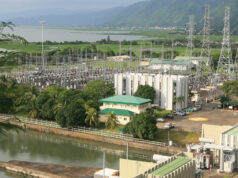EMERGING MARKETS need to expand their paid sick leave policies to encourage workers to observe self-isolation rules in order to curb the spread of the coronavirus, according to the Asian Development Bank (ADB).
“Intuitively, if you offer people paid sick leave, you incentivize them to be more truthful in reporting their symptoms. Otherwise, people may have to choose to hide their cases to avoid income losses. Therefore, paid sick leave can make tracing easier and more accurate,” Liming Chen of ADB’s Economic Research and Regional Cooperation Department said during a webinar Tuesday.
It said even stringent lockdowns may not be effective in controlling movements in emerging markets where workers have fewers options to work from home, he said.
Mr. Chen said contact tracing and paid sick leave will be more effective in slowing down the infection rate for coronavirus disease 2019 (COVID-19).
In the Philippines, which had one of the longest lockdowns in the world, the paid leave system can be implemented in coordination with contact tracers at the barangay level, with the Social Security System serving as a conduit for benefits, according to Rouselle Lavado, a senior health specialist at ADB’s Central and West Asia Department.
Ms. Lavado said the system will have to be introduced to all workers, especially those in the informal sector, for it to be effective in incentivizing isolation.
“There are many problems in the financial inclusion of the informal sector workers but then since (the pandemic) is not going to end very soon, now might be a good time to hit two birds with one stone (and) register these informal workers,” she said.
“(Vietnam), New Zealand (and) European countries… had incentives to keep those with COVID-19 cases isolated, they were given allowances… This is very relevant for lower-middle income countries because as you know, many are employed in the informal sector under a ‘no work, no pay’ policy,” Ms. Lavado said. — Beatrice M. Laforga



